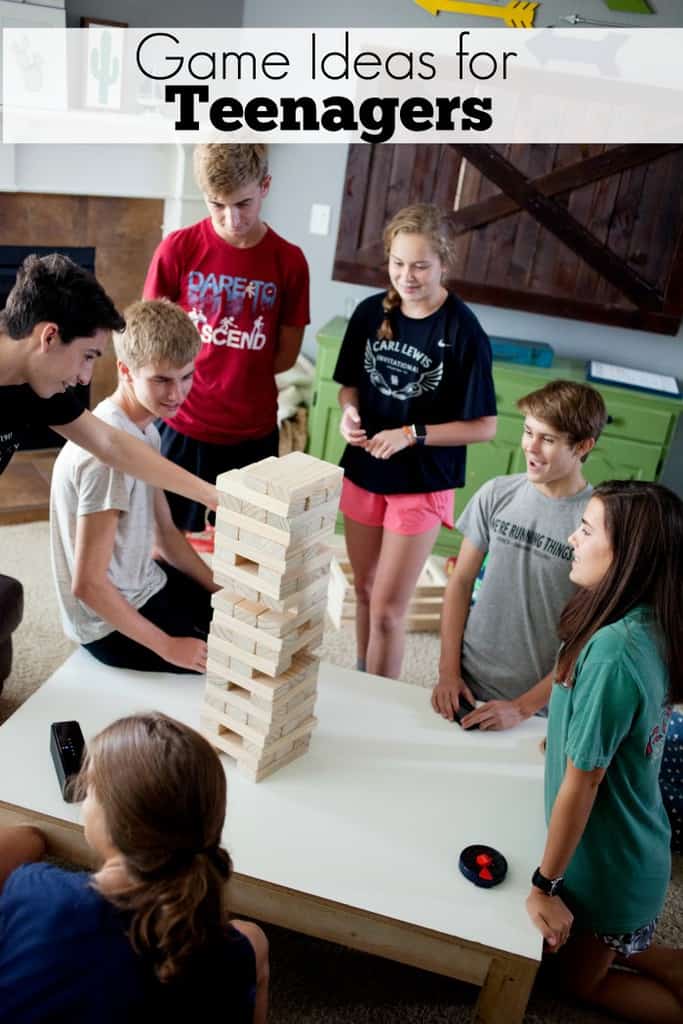Introduction to the World of Teenage Gaming: A Must-Read for Curious Parents
Welcome, wonderful parents! Are you looking to understand more about the games that captivate your teenager’s heart and time? Fret not, because you’re about to embark on an exciting journey into the world of teenage gaming that’s both informative and fun! In this comprehensive guide, you’ll discover the colorful landscapes, intriguing storylines, and engaging challenges that your teens experience in their gaming adventures.
Let’s clarify one thing right off the bat—gaming is not just a pastime anymore; it’s a global phenomenon that offers a variety of experiences and opportunities for learning, socializing, and growing. So grab your favorite snack, and let’s level up your gaming knowledge together!
Spotlight on Popular Games: What Are Teens Playing Today?
Are you puzzled when you hear “Among Us” or “League of Legends” from your teen’s room? These titles are just the tip of the iceberg in the vast ocean of games that thrill and entertain today’s youth. Here’s a rundown on some of the popular games that might be gripping your teen’s attention:
- Fortnite: A colorful, fast-paced battle royale game that has taken the world by storm. Players skydive onto an island and fight it out to be the last one standing.
- Roblox: A platform of games created by users, Roblox lets players jump in and out of realities—from role-playing games to obstacle courses, there’s something for everyone.
- Minecraft: A block-building phenomenon that promotes creativity and problem-solving as players build, mine, and explore their unique worlds.
- Valorant: A team-based tactical shooter that’s all about strategy, precise aim, and character abilities.
- Animal Crossing: New Horizons: A relaxing escape to an island paradise where teens can create, customize, and share their perfect getaway.
But that’s not all! There’s an entire universe of genres out there, from sports to simulation, that encompass a smorgasbord of themes and skill levels. The key is to identify what your teen enjoys and engage in a conversation about their gaming preferences.
The Benefits of Gaming: More Than Just Play
Before we raise our eyebrows, let’s hit pause and explore the positive side of gaming. Believe it or not, gaming can be incredibly beneficial for teenagers. Here are a few plus points:
- Enhances Problem-solving Skills: Games are riddled with puzzles and challenges that require logical thinking and strategy.
- Encourages Teamwork: Multiplayer games allow teens to work collaboratively, building teamwork and communication skills.
- Develops Hand-eye Coordination: Fast-paced action games can improve reflexes and coordination.
- Cultivates Creativity: Many games, like Minecraft, allow for endless creative expression and design.
- Provides Stress Relief: Gaming can be a therapeutic way for teens to unwind and manage stress in a controlled environment.
While there are numerous benefits, staying informed and maintaining an open dialogue with your teens about their gaming habits is essential.
Navigating Safety: Tips for Protecting Your Teen Online
The digital realm holds great opportunities but also comes with its risks. As a parent, it’s crucial to ensure a safe gaming environment for your teen. Below are practical tips for online gaming safety:
- Privacy Settings and Controls: Familiarize yourself with the privacy settings and parental controls available on consoles, PCs, and games to help manage what your teen can access.
- Discuss Online Interactions: Have an open conversation about the importance of not sharing personal information and the potential risks of interacting with strangers online.
- Monitor Gaming Time: Encourage a healthy balance by setting limits on gaming time and promoting other activities and interests.
- Promote Positive Behavior: Reinforce the importance of respect and kindness when playing with others, even in competitive games.
- Stay Updated: Keep yourself informed about the latest gaming trends and potential safety issues that might arise.
By creating an environment of trust and understanding, you’ll not only ensure their safety but also potentially deepen your relationship with your teen.
Connecting Over Controllers: Building Bonds Through Gaming
Gaming, believe it or not, can be a potent bonding tool between you and your teenager. Whether it’s taking a genuine interest in the games they play or joining in on the fun, sharing in this aspect of their lives opens up new avenues for connection and conversation. So why not ask your teen to teach you the ropes of their favorite game? They’ll likely appreciate your effort and enthusiasm, and you might just have a blast in the process!
As we wrap up this introduction to teenage gaming, remember that your journey as a parent in understanding this vibrant world doesn’t have to be daunting. Games can be a source of joy, growth, and even shared family memories. Stay tuned for more in-depth discussions in this guide, where we dive into game reviews, breaking down gaming jargon, and how to foster healthy gaming habits in your household. Our adventure is just beginning, and the best is yet to come – let’s continue leveling up together in the world of teenage games!

Five Essential Tips for Parents Preparing for the Teenage Gaming Experience
As the digital world continues to evolve at a rapid pace, it’s crucial for parents to stay informed and actively involved in their teenagers’ gaming experiences. To do this effectively, here are five essential tips:
1. Understand the Entertainment Software Rating Board (ESRB) Ratings
Just like movies have ratings, video games are rated by the ESRB based on content and age appropriateness. Familiarizing yourself with these ratings helps in selecting suitable games for your teen. The ratings range from “E for Everyone” to “AO for Adults Only,” so pay close attention and choose wisely!
2. Establish a Dialogue About Gaming Etiquette
Communicate with your teen about the importance of proper behavior while playing online. Discuss topics like cyberbullying, trash-talking, and the consequences of such actions. Instilling a sense of digital citizenship early on can greatly enhance your teen’s online gaming experience.
3. Create a Gaming Schedule
Time management is key when it comes to gaming. Help your teen create a balanced schedule that includes time for homework, chores, physical activities, and socializing in person. Moderation is essential, and a structured timetable can make all the difference in ensuring gaming remains a healthy part of their routine.
4. Participate and Show Interest
Not only should you monitor what games your teen plays, but also take an active interest in them. This might mean playing games together or simply watching and asking questions. Your engagement can help you better understand the appeal of gaming and signal to your teen that you respect their interests.
5. Stay Informed and Technologically Savvy
The gaming landscape is always changing with new trends, technologies, and potential risks. Stay alert by educating yourself about the latest developments in gaming. Staying technologically savvy means you’ll be better equipped to discuss gaming content with your teen and to protect them from potential online risks.
Gaming is a dynamic and integral part of teenage life in today’s digital age. By staying involved, open-minded, and proactive, you can ensure that your teen’s gaming experience is positive, enriching, and, above all, safe. Remember, you don’t have to navigate this vibrant and ever-expanding universe alone; use trusted resources, fellow parents, and even your teen as guides to help you through this journey. Happy gaming!
See more great Things to Do with Kids in New Zealand here. For more information see here
Disclaimer
The articles available via our website provide general information only and we strongly urge readers to exercise caution and conduct their own thorough research and fact-checking. The information presented should not be taken as absolute truth, and, to the maximum extent permitted by law, we will not be held liable for any inaccuracies or errors in the content. It is essential for individuals to independently verify and validate the information before making any decisions or taking any actions based on the articles.




